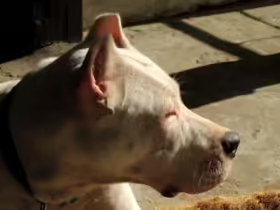Introduction
Maintaining good oral hygiene is essential for the overall health and well-being of your pets, including Persian cats and dogs. Just like humans, pets are prone to dental problems that can lead to serious health issues if not properly managed. From tartar buildup to gum disease, poor dental care can significantly affect your pet’s quality of life.
In this comprehensive guide, we will explore the importance of oral hygiene for pets, provide tips on maintaining your Persian cat’s and dog’s dental health, and offer insights into recognizing and addressing common dental issues.
The Importance of Oral Hygiene
1. Preventing Dental Diseases
- Tartar and Plaque Buildup: Without regular dental care, tartar and plaque can accumulate on your pet’s teeth. This buildup leads to gum irritation, gingivitis, and eventually periodontal disease, which can cause tooth loss and pain.
- Gum Disease: Gum disease is common in pets and can lead to serious health complications if not treated. It often begins with gingivitis (inflammation of the gums) and can progress to periodontitis (infection of the bone supporting the teeth).
2. Overall Health Benefits
- Preventing Systemic Issues: Dental diseases can affect more than just the mouth. Bacteria from infected gums can enter the bloodstream and lead to systemic health issues such as heart disease, liver disease, and kidney problems.
- Improved Quality of Life: Good oral hygiene helps prevent pain and discomfort associated with dental problems. This contributes to your pet’s overall well-being and quality of life.
Understanding Dental Problems in Pets
1. Common Dental Issues
- Bad Breath: Persistent bad breath (halitosis) can be a sign of dental issues such as tartar buildup, gum disease, or infections.
- Broken or Loose Teeth: Trauma or chewing on hard objects can cause teeth to break or loosen, leading to pain and potential infection.
- Swollen Gums: Inflamed or bleeding gums are signs of gingivitis or periodontal disease and should be addressed promptly.
2. Symptoms to Watch For
- Difficulty Eating: If your pet is hesitant to eat, drops food, or chews on one side of the mouth, it could indicate dental pain.
- Excessive Drooling: Increased drooling or pawing at the mouth can be a sign of dental discomfort or disease.
- Changes in Behavior: Pets in pain may become more irritable or withdrawn, showing changes in behavior that could be linked to dental issues.
Dental Care for Persian Cats
1. Brushing Your Cat’s Teeth
- Start Early: Introduce tooth brushing early in your cat’s life to get them accustomed to the process. Use a cat-specific toothbrush and toothpaste.
- Technique: Gently brush your cat’s teeth using circular motions. Focus on the outer surfaces of the teeth where plaque tends to accumulate.
2. Dental Chews and Toys
- Chewing Options: Offer dental chews and toys designed to help reduce tartar buildup. These can also provide mental stimulation and alleviate boredom.
- Supervised Play: Always supervise your cat while they play with dental toys to ensure they are safe and not ingesting any parts.
3. Professional Cleanings
- Regular Check-ups: Schedule regular veterinary check-ups to monitor your cat’s dental health. Your vet may recommend professional cleanings if necessary.
- Anesthesia Considerations: Cats usually require anesthesia for thorough dental cleanings, so discuss the risks and benefits with your vet.
Dental Care for Dogs
1. Brushing Your Dog’s Teeth
- Daily Brushing: Aim to brush your dog’s teeth daily with a dog-specific toothbrush and toothpaste. Regular brushing helps prevent plaque buildup and gum disease.
- Brushing Technique: Use gentle circular motions and focus on the gum line. Gradually get your dog accustomed to the brushing routine.
2. Dental Diets and Treats
- Dental Diets: Consider feeding your dog a dental diet that helps reduce tartar buildup. These specially formulated foods have textures that clean the teeth as your dog chews.
- Treats: Offer dental treats designed to promote oral health and freshen breath. Ensure that treats are appropriate for your dog’s size and chewing ability.
3. Professional Cleanings
- Veterinary Visits: Regular veterinary visits are essential for monitoring your dog’s dental health. Professional cleanings may be necessary to address tartar buildup and gum disease.
- Anesthesia for Cleanings: Dogs typically require anesthesia for dental cleanings. Discuss the procedure and any concerns with your vet.
Implementing a Dental Care Routine
1. Establishing a Routine
- Consistency: Develop a consistent dental care routine for your pet, including regular brushing, check-ups, and dental treats. Consistency is key to preventing dental problems.
- Monitoring: Keep an eye on your pet’s oral health and look for any signs of dental issues. Address concerns promptly to prevent more serious problems.
2. Educating Yourself
- Learn About Dental Health: Educate yourself about dental health and the specific needs of your Persian cat or dog. Your vet can provide valuable information and guidance.
- Stay Informed: Stay updated on the latest dental care products and techniques. New advancements may offer better solutions for maintaining your pet’s oral health.
Conclusion
Pet dental care is a crucial aspect of maintaining the overall health and well-being of your Persian cat or dog. By incorporating regular brushing, providing dental chews and toys, and scheduling professional cleanings, you can help prevent dental problems and improve your pet’s quality of life.
Remember that dental issues can lead to serious health problems if left untreated. By taking proactive steps and establishing a consistent dental care routine, you can ensure that your pet’s smile stays bright and healthy for years to come.











Leave a Reply